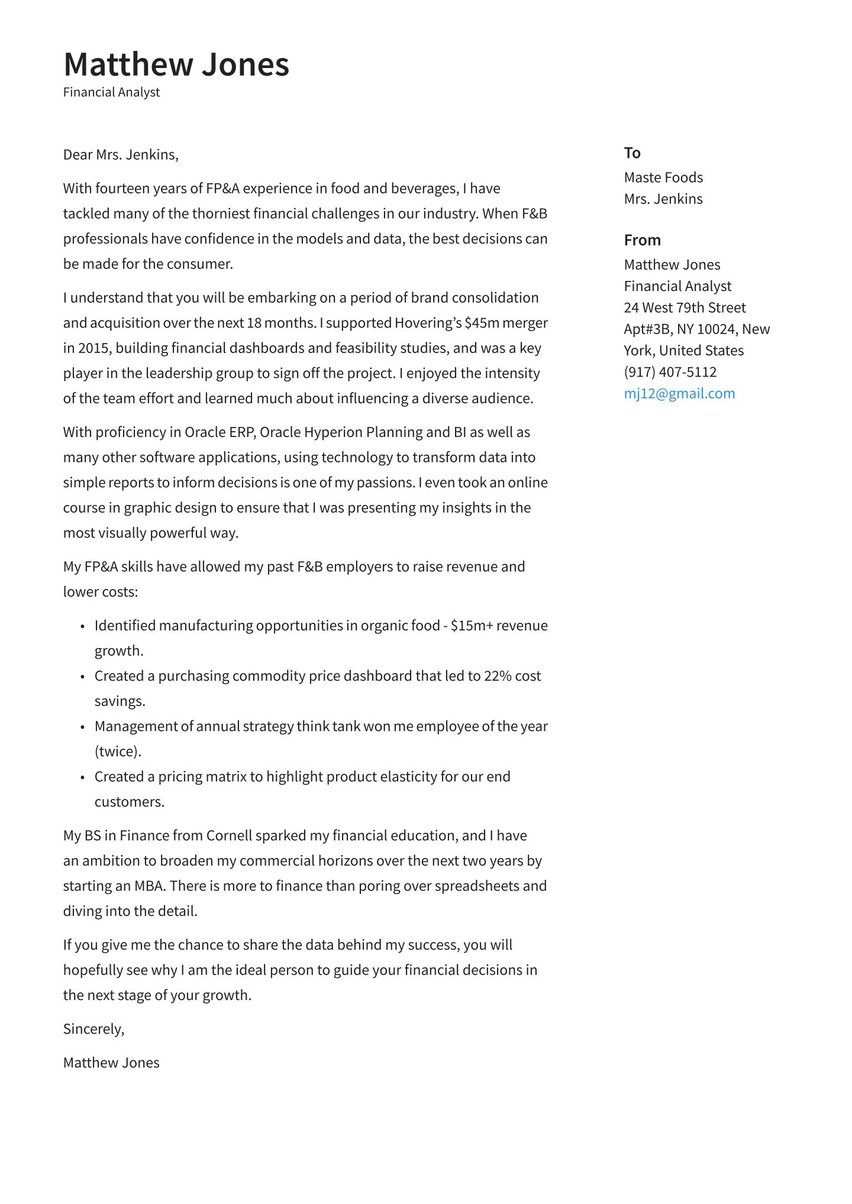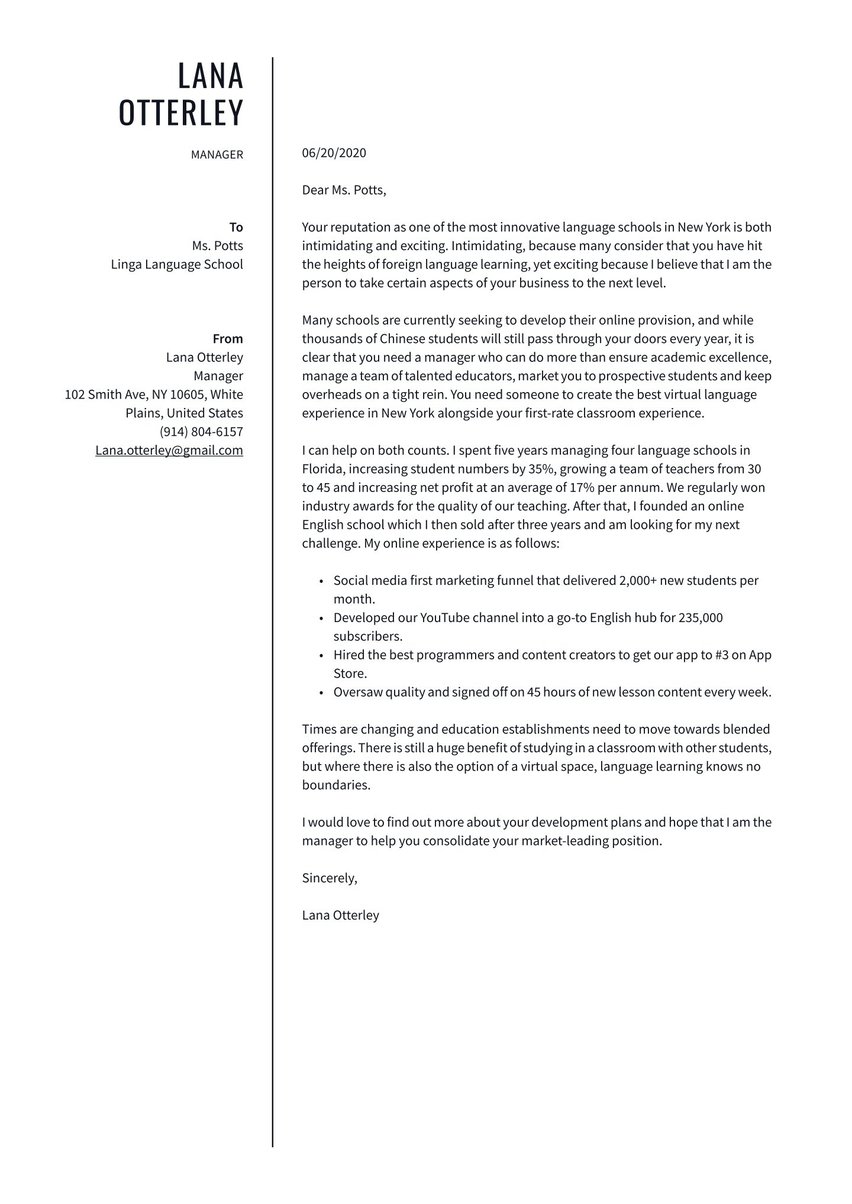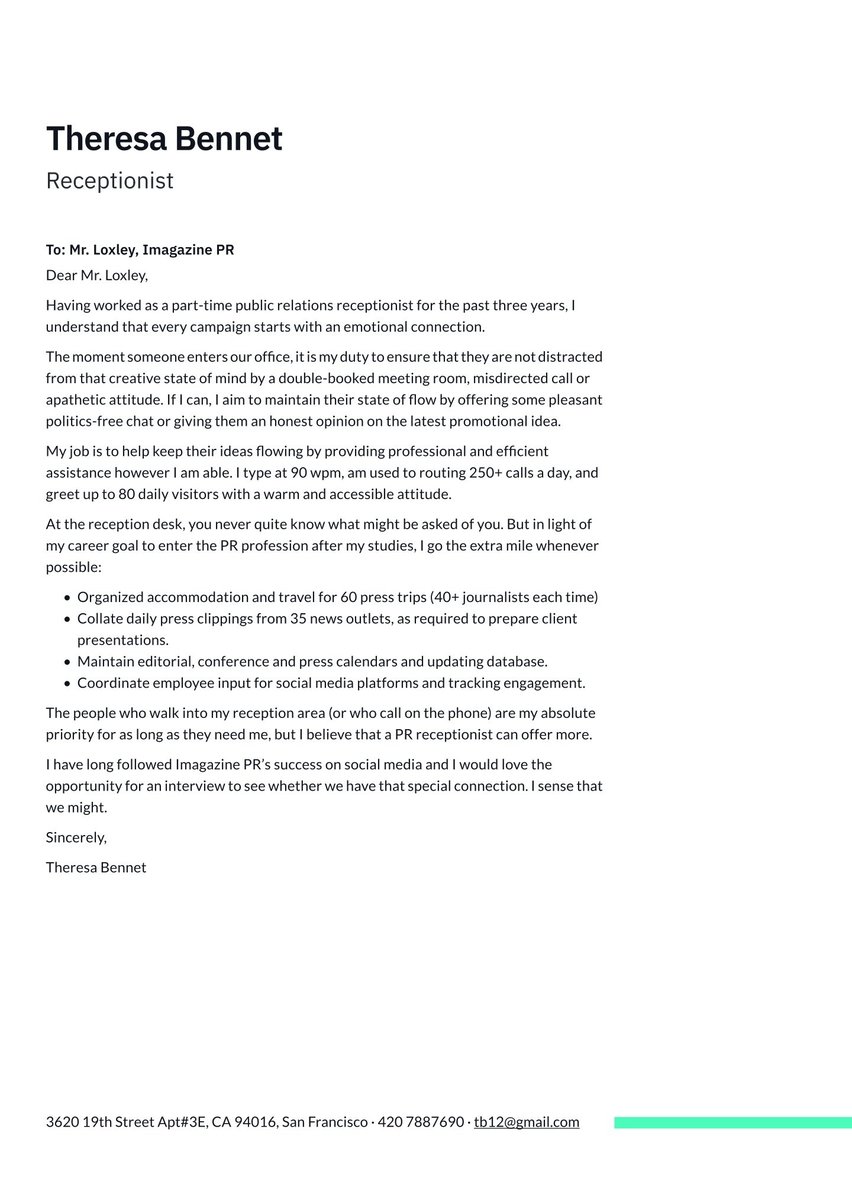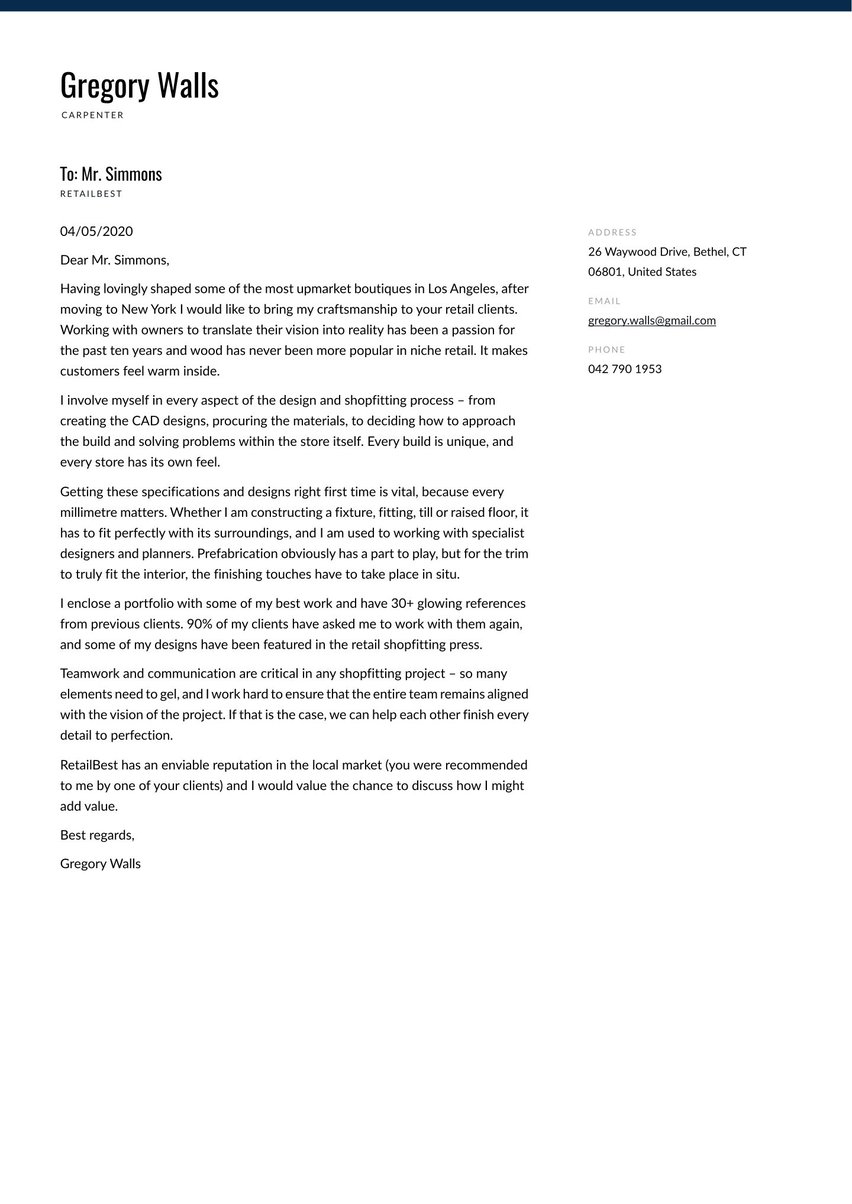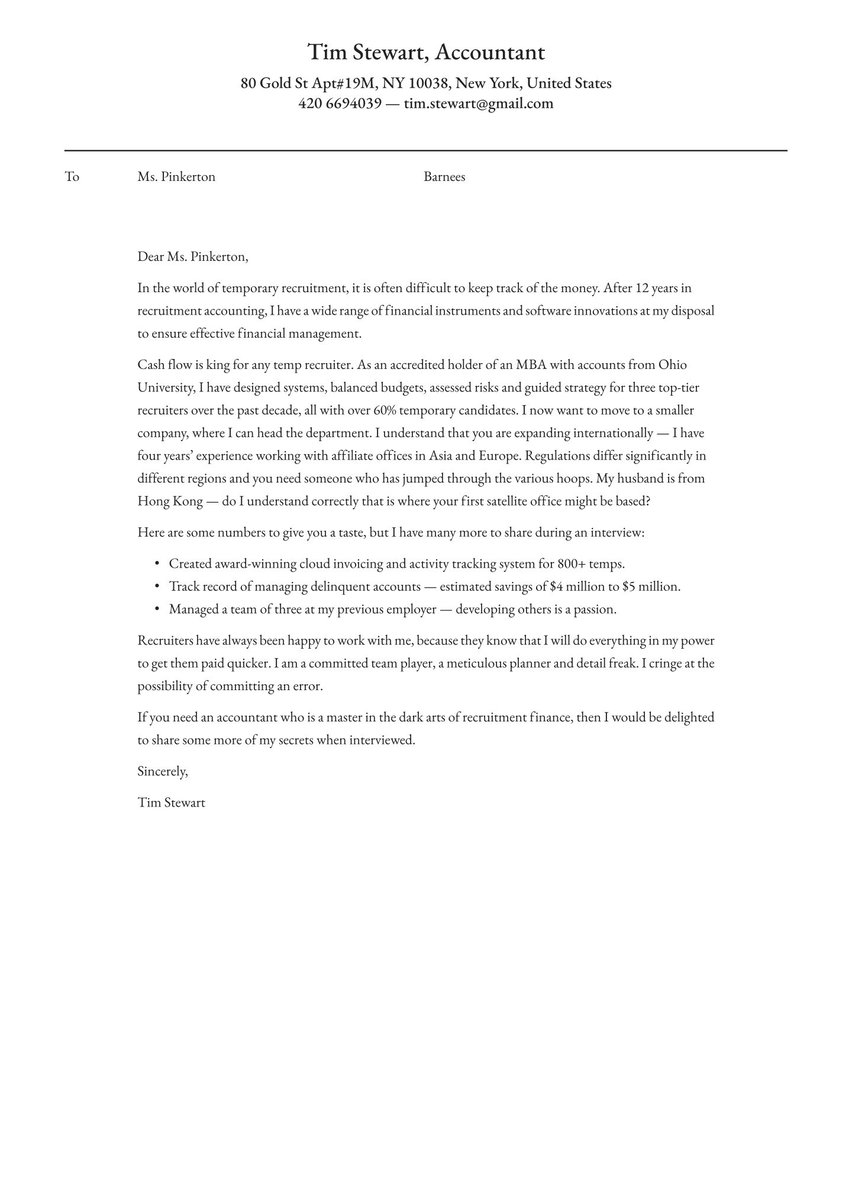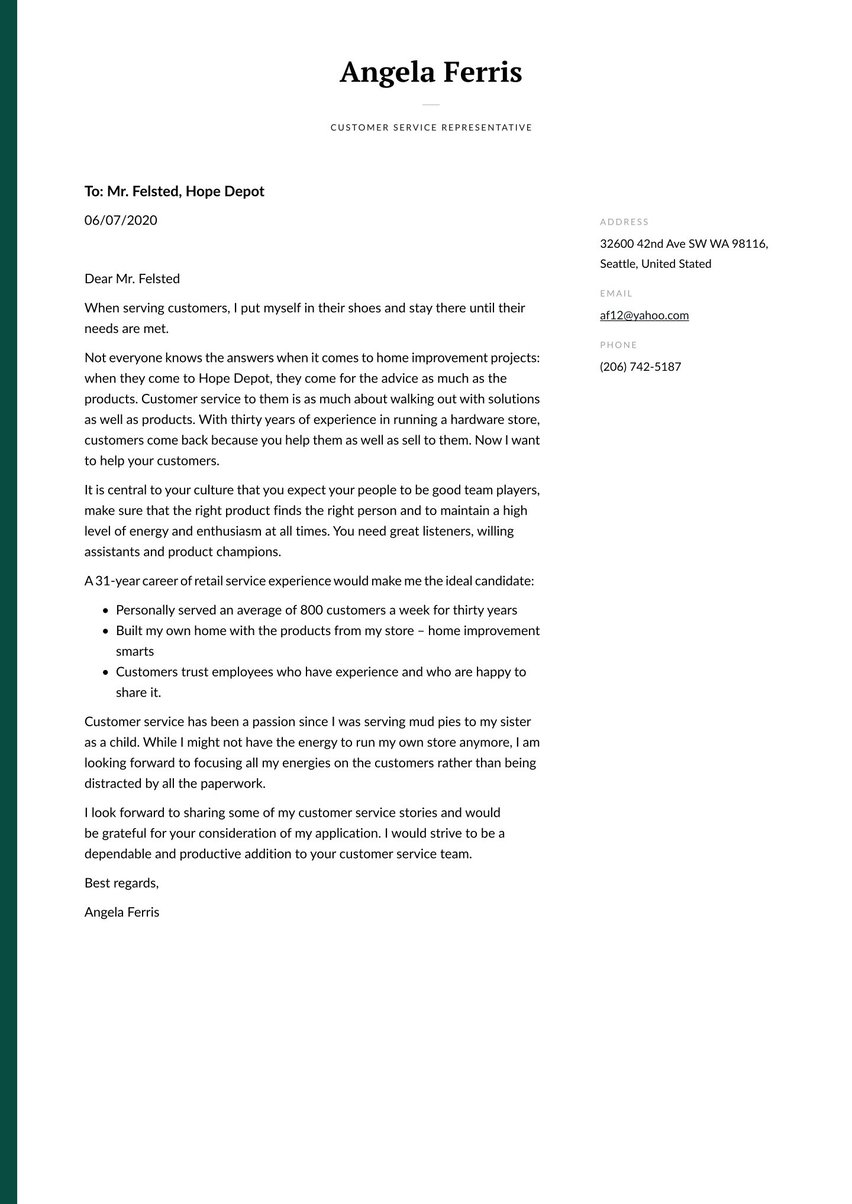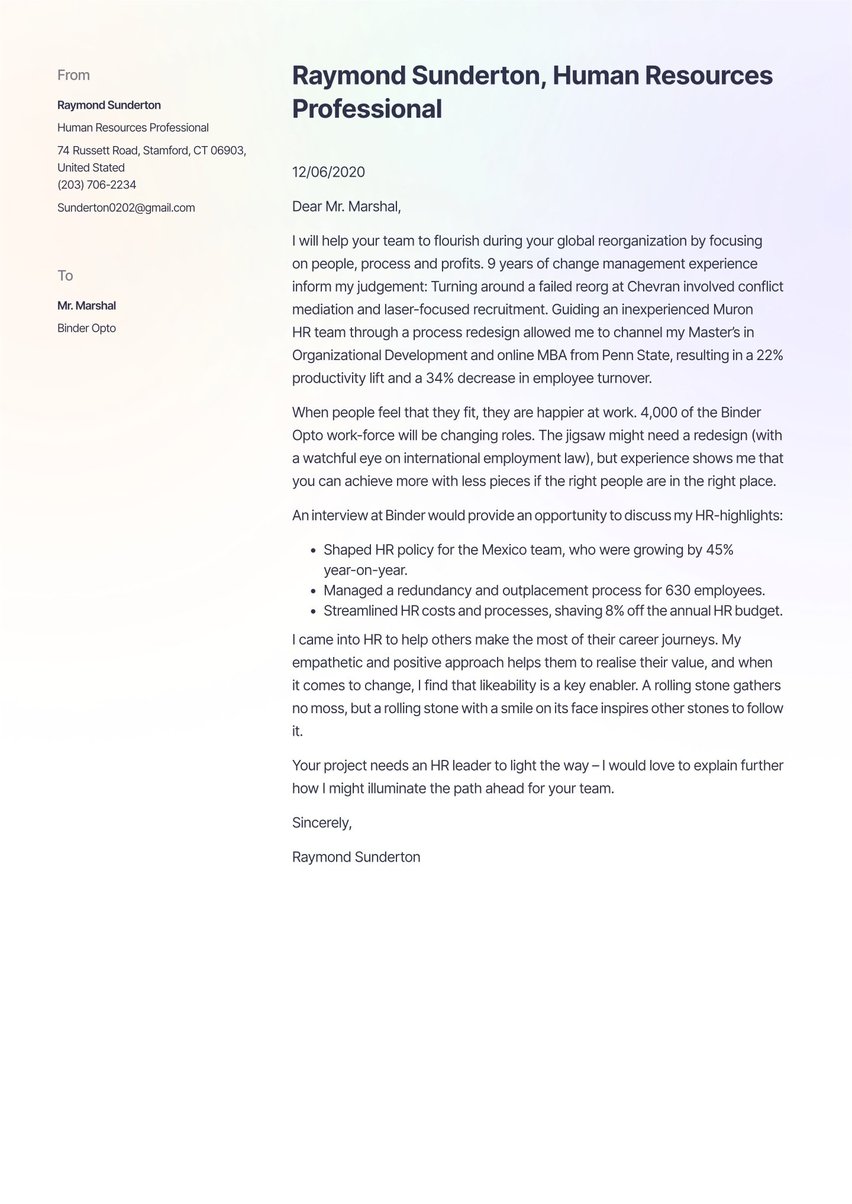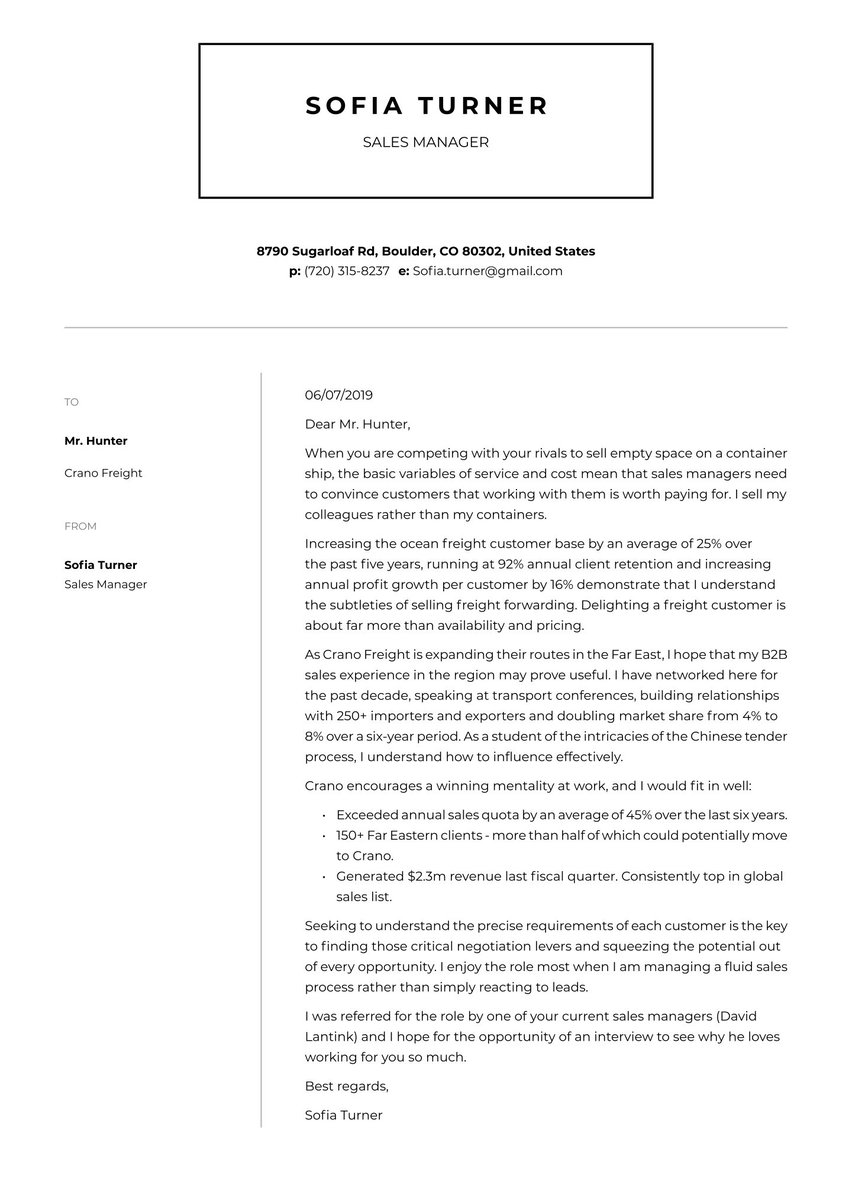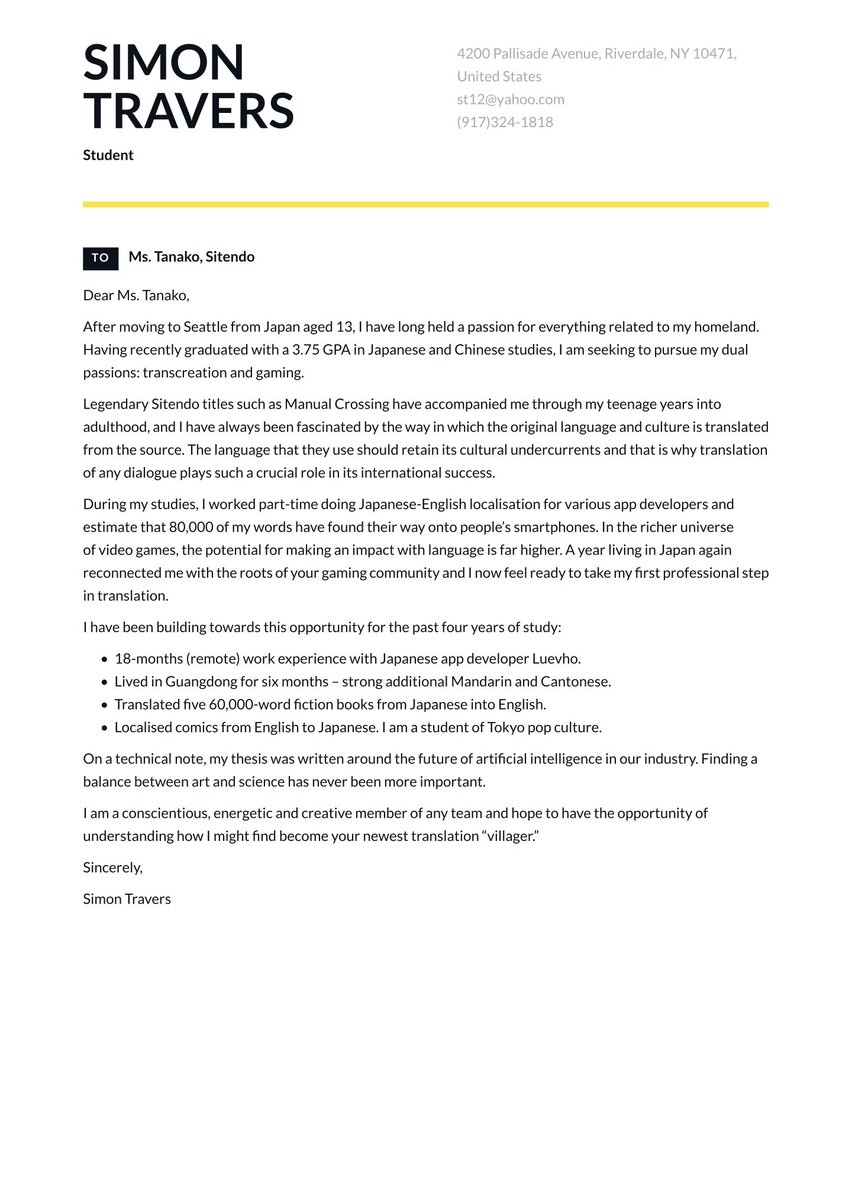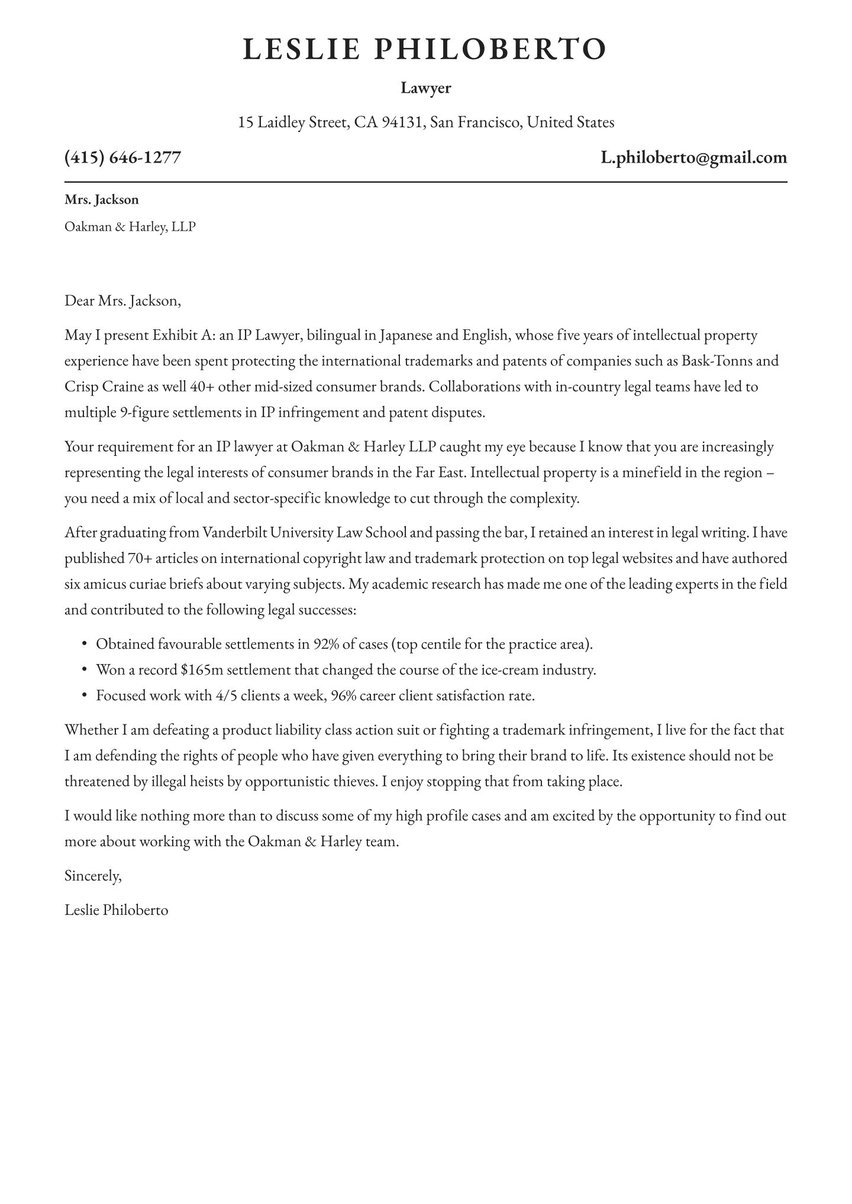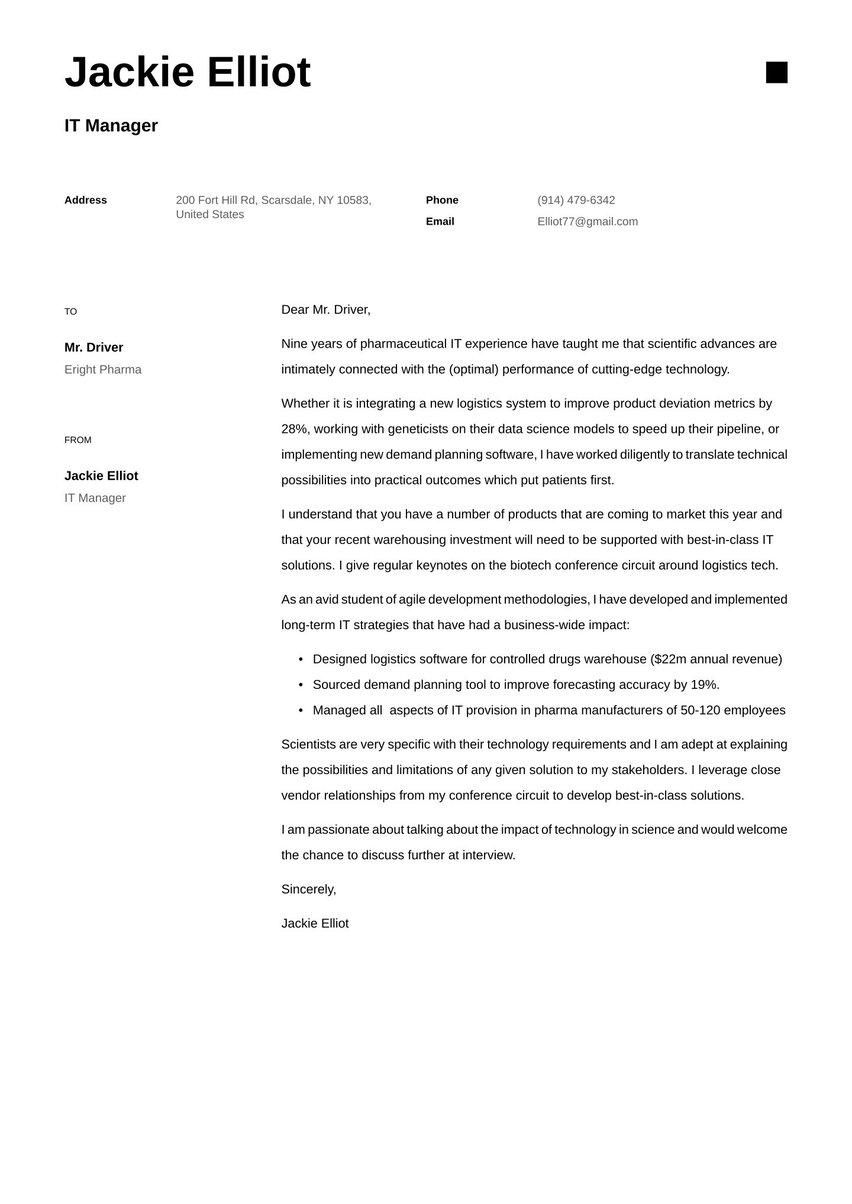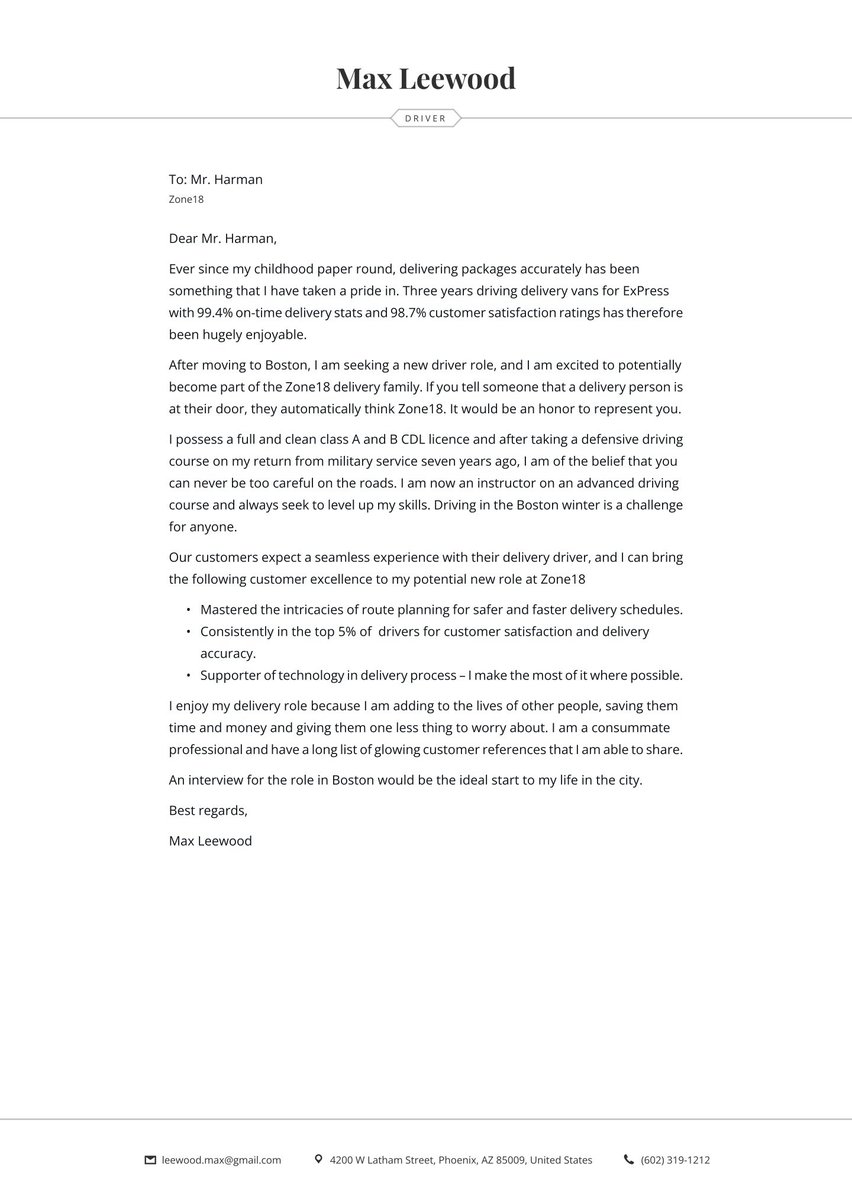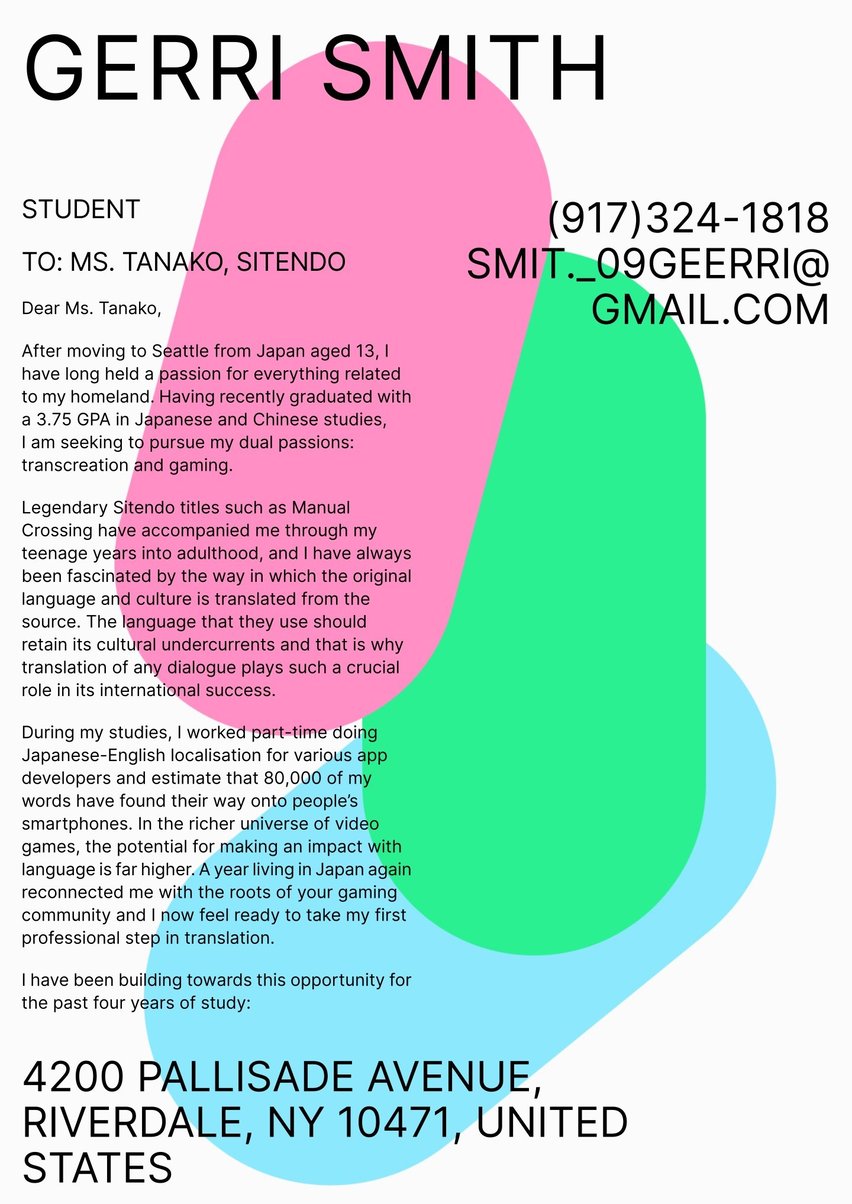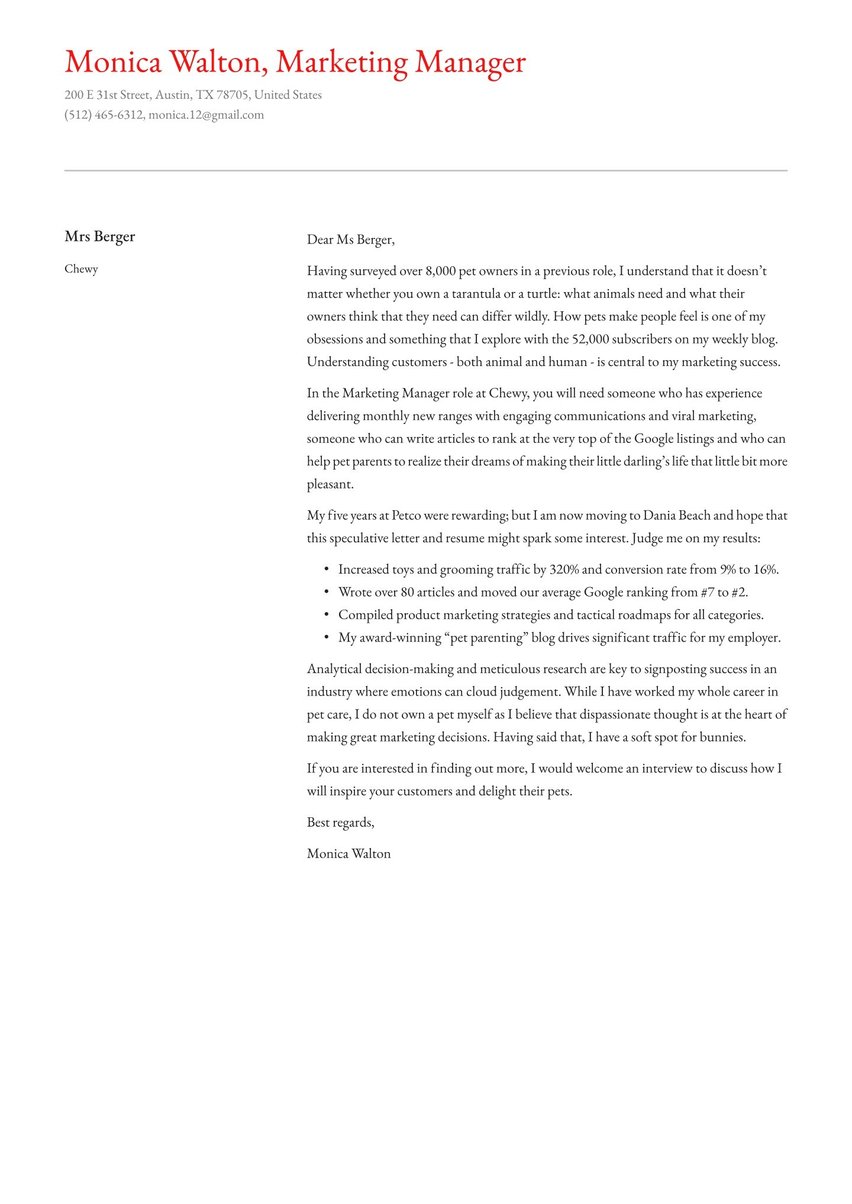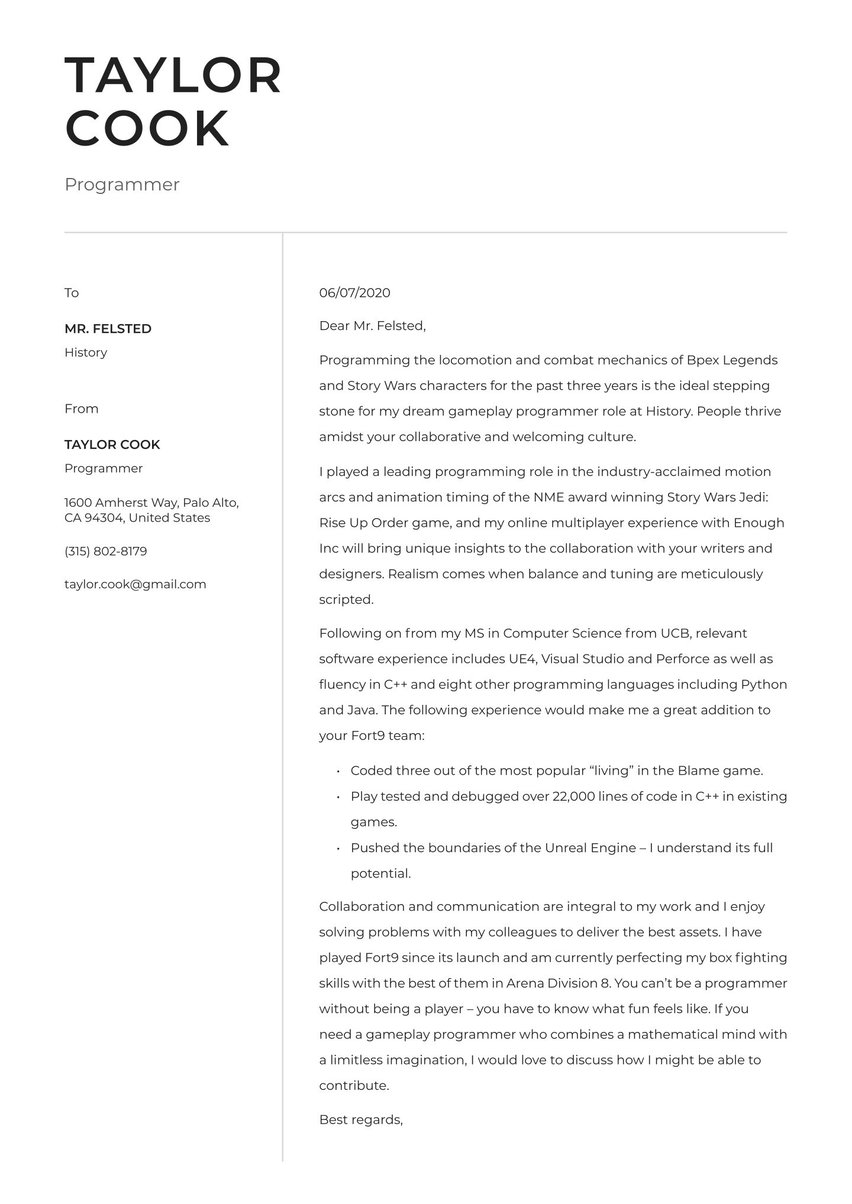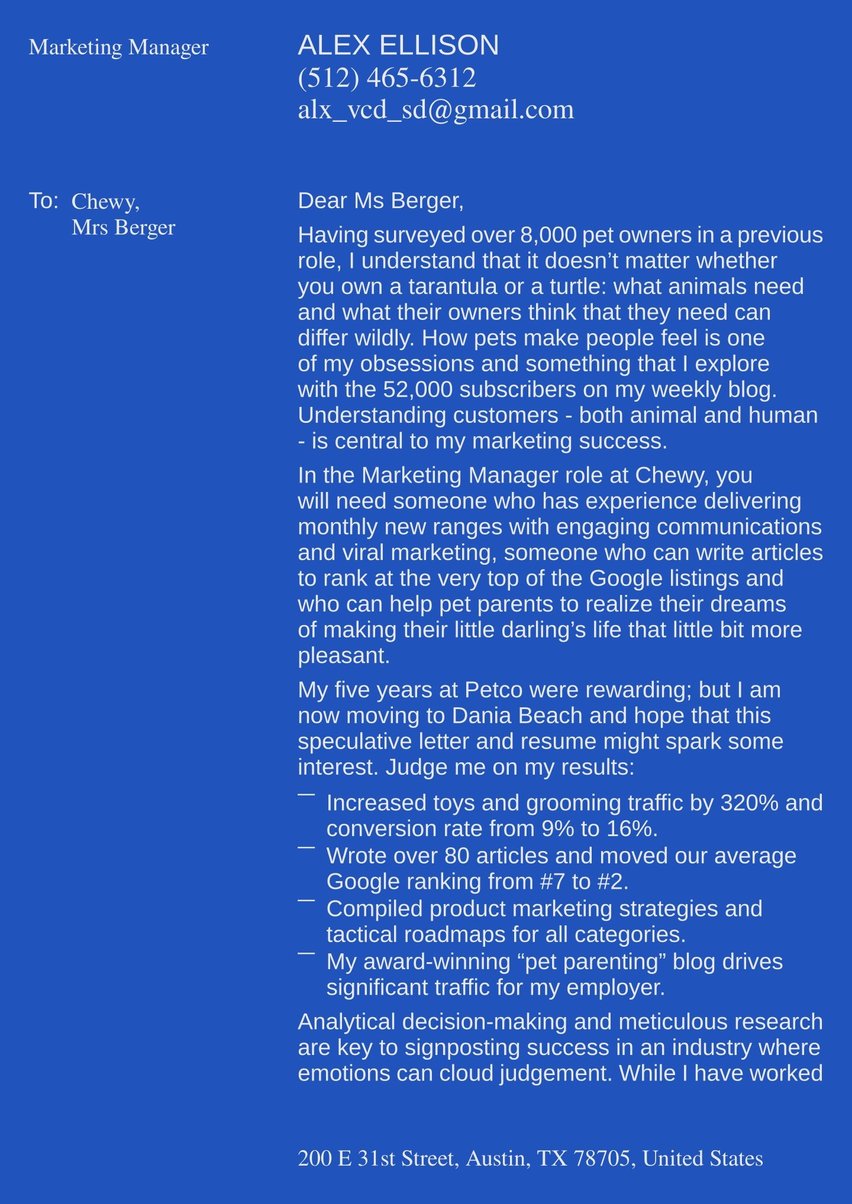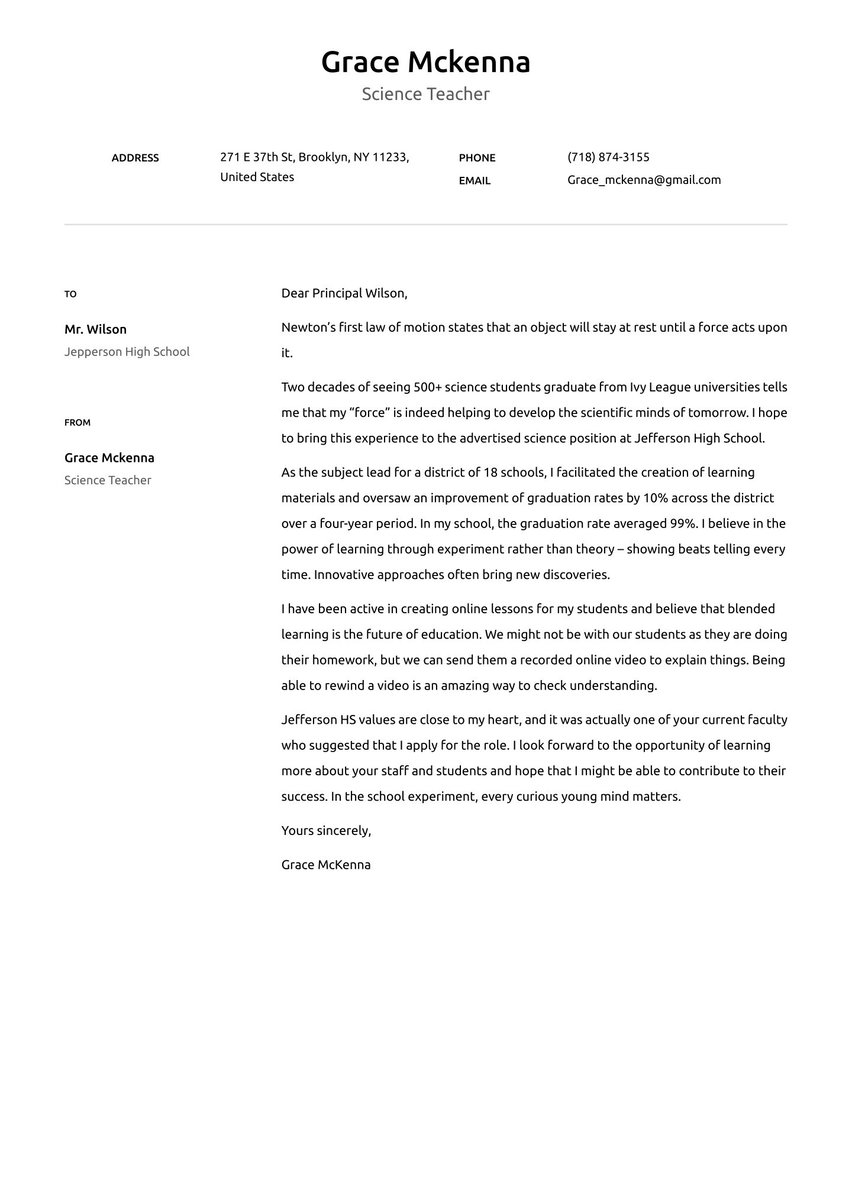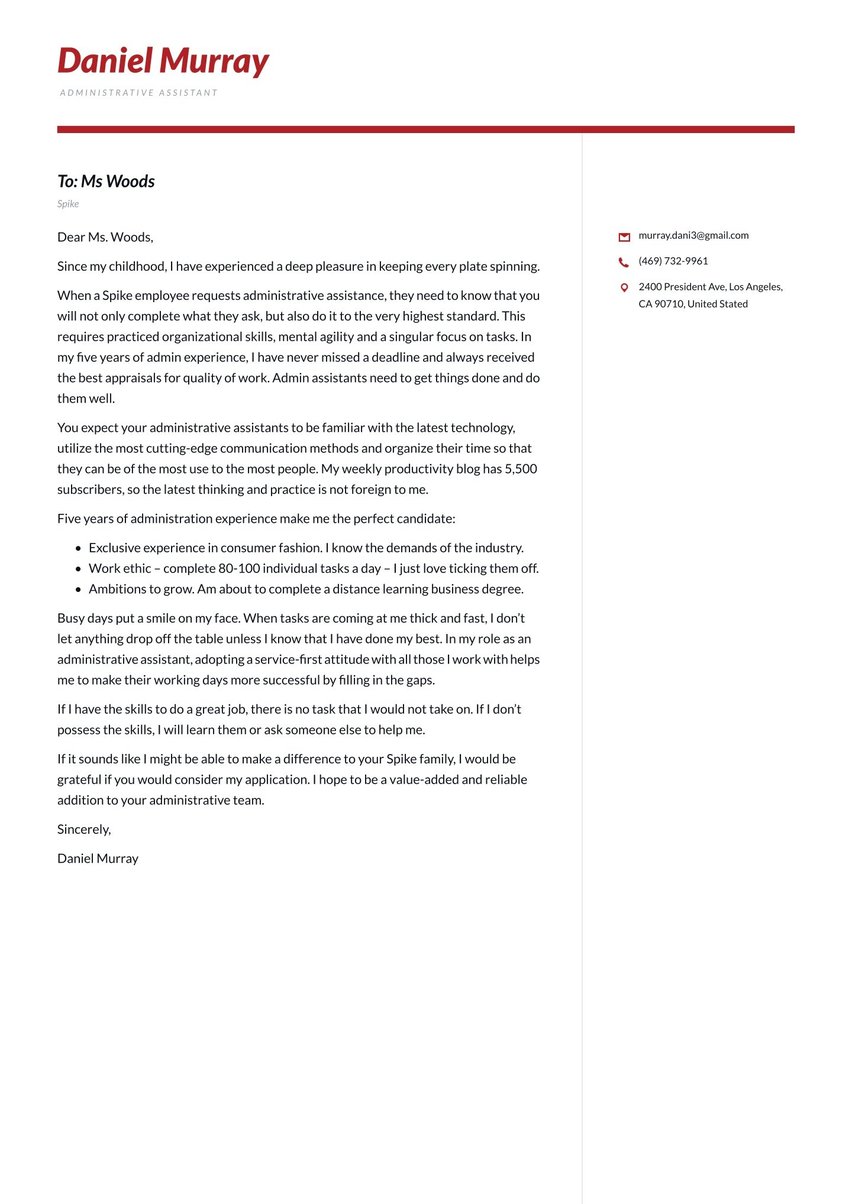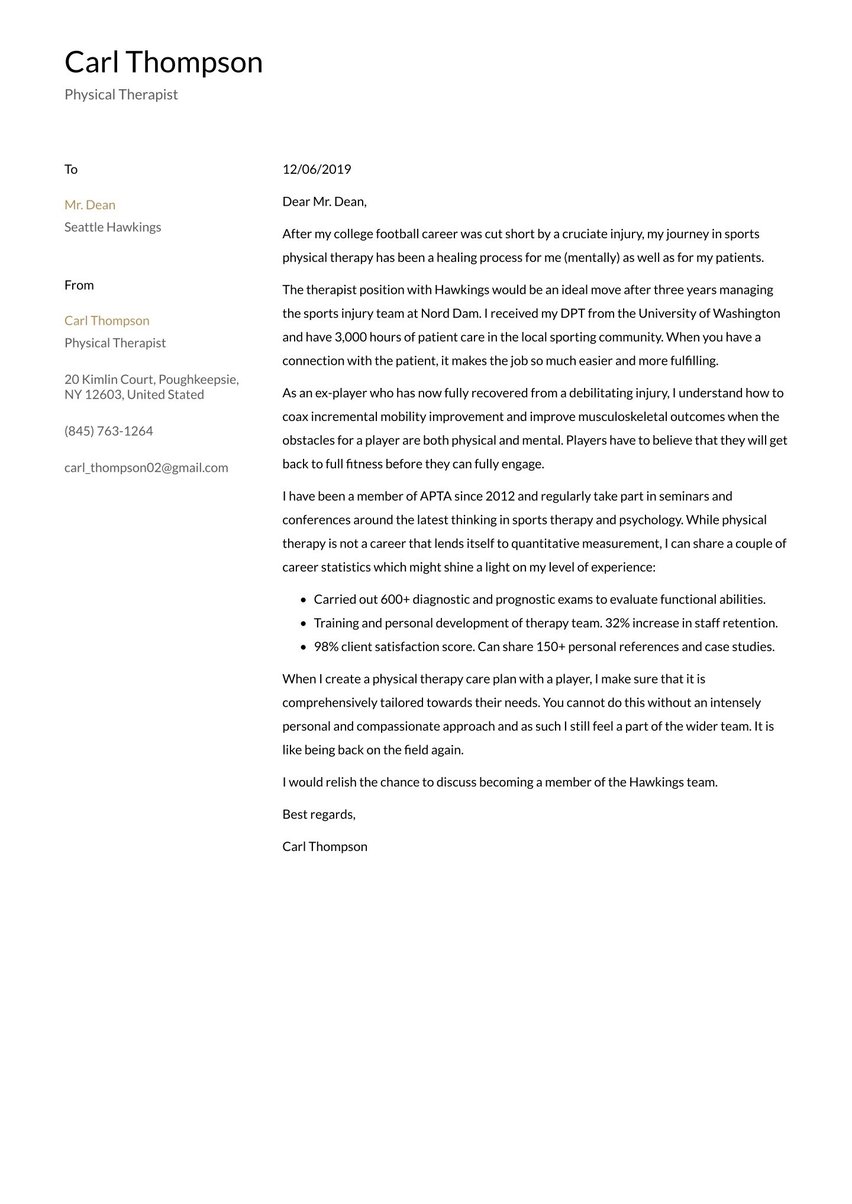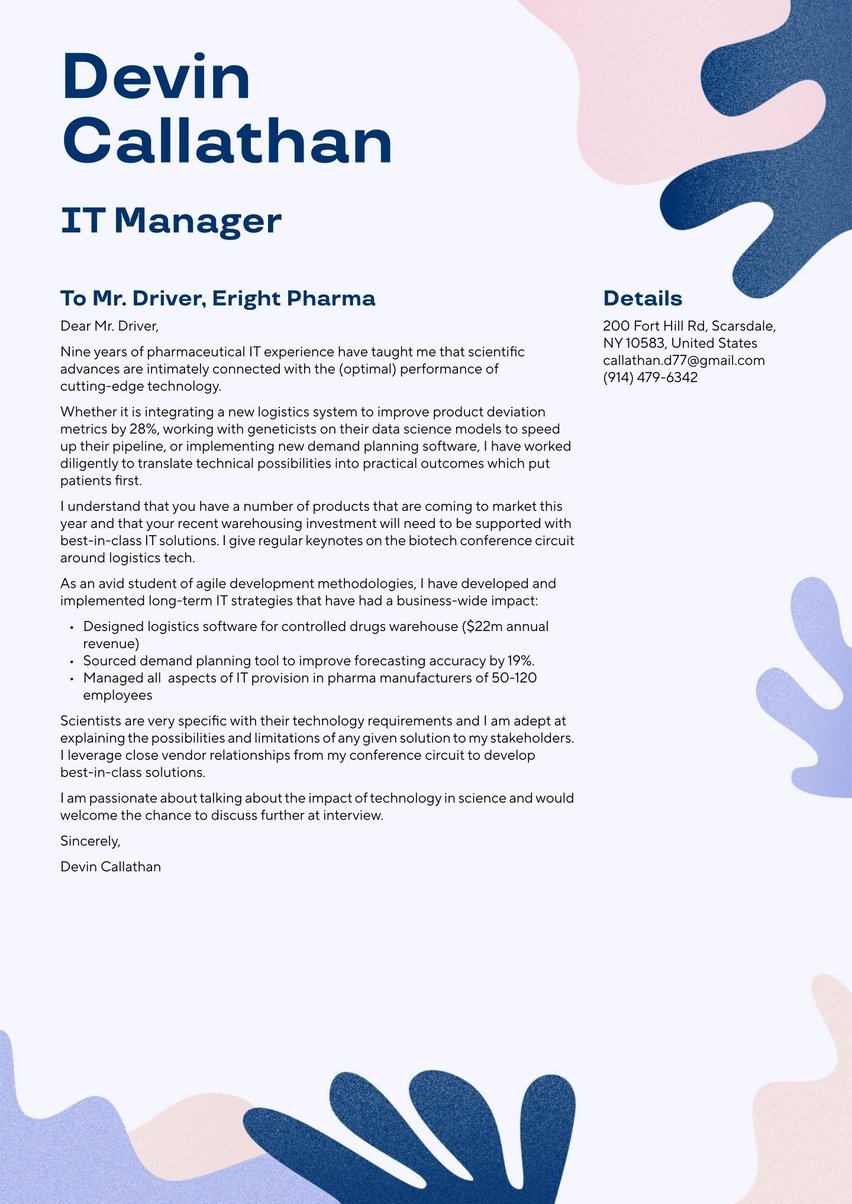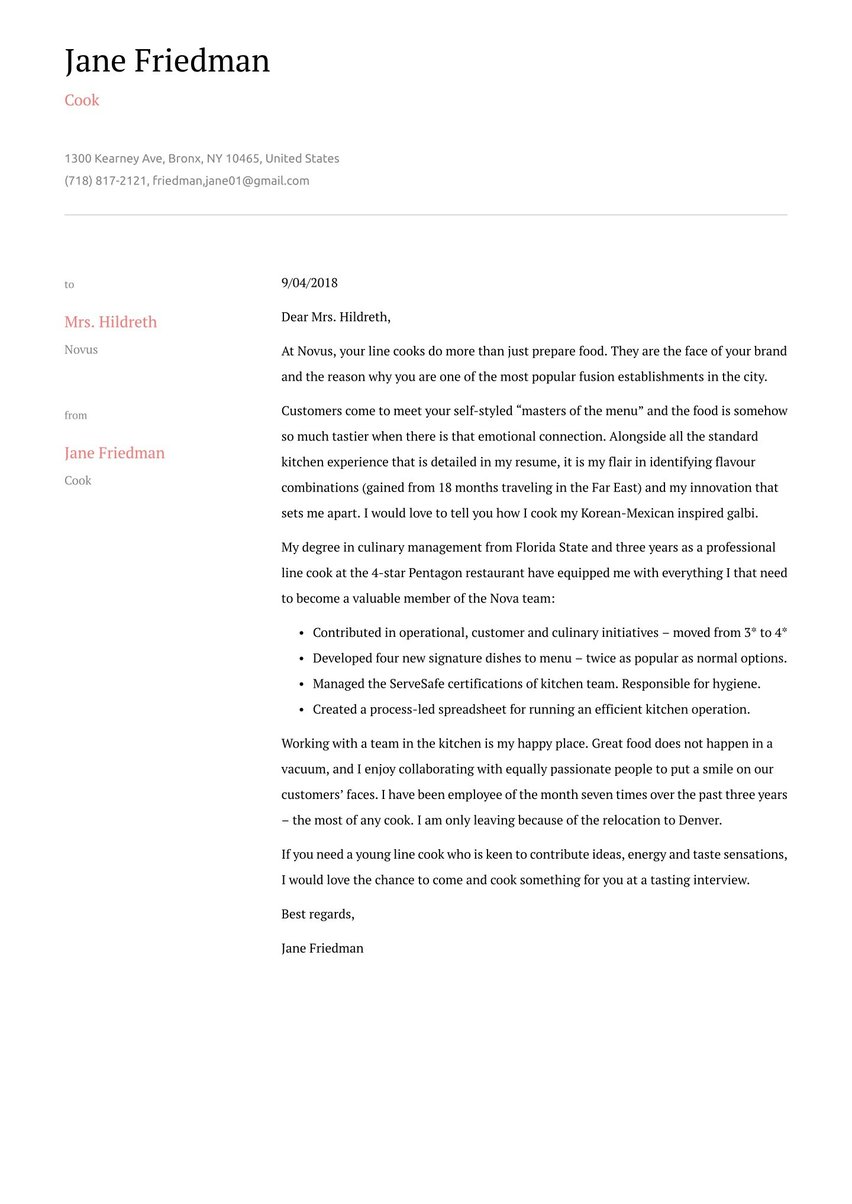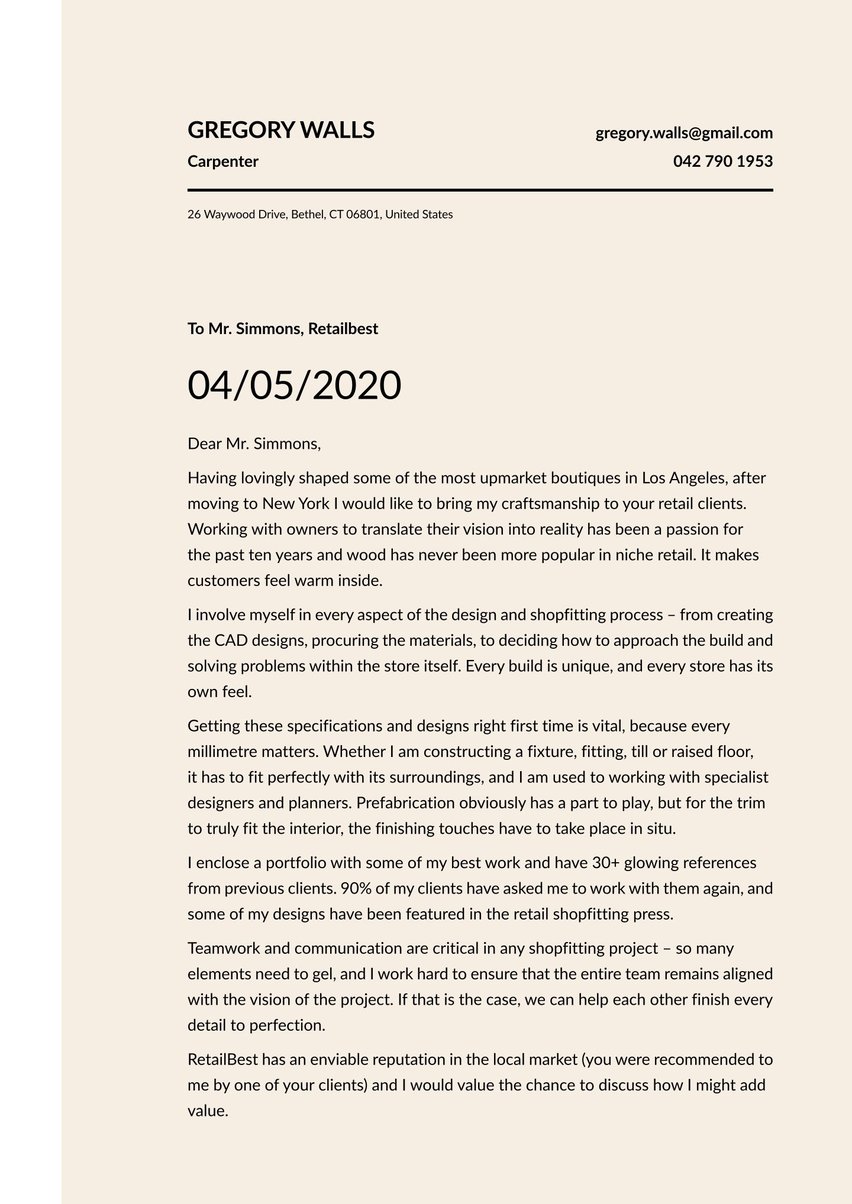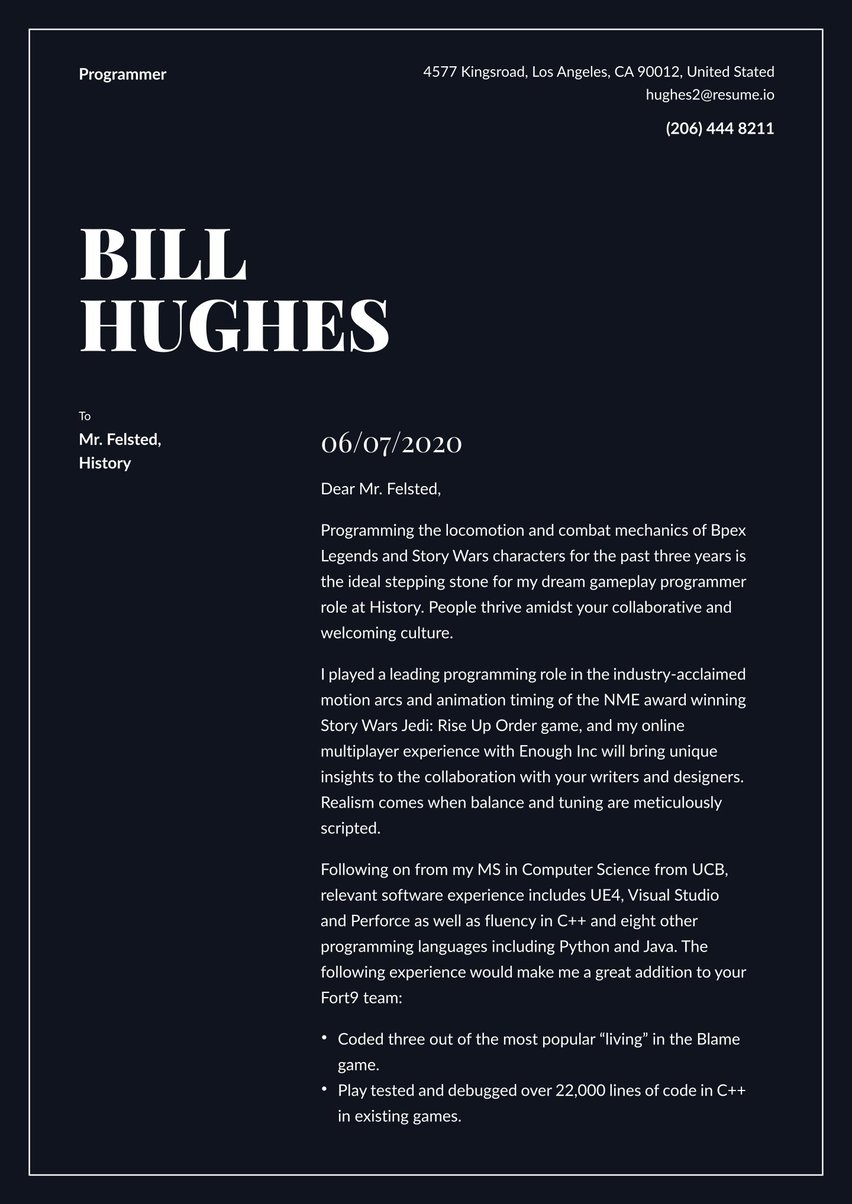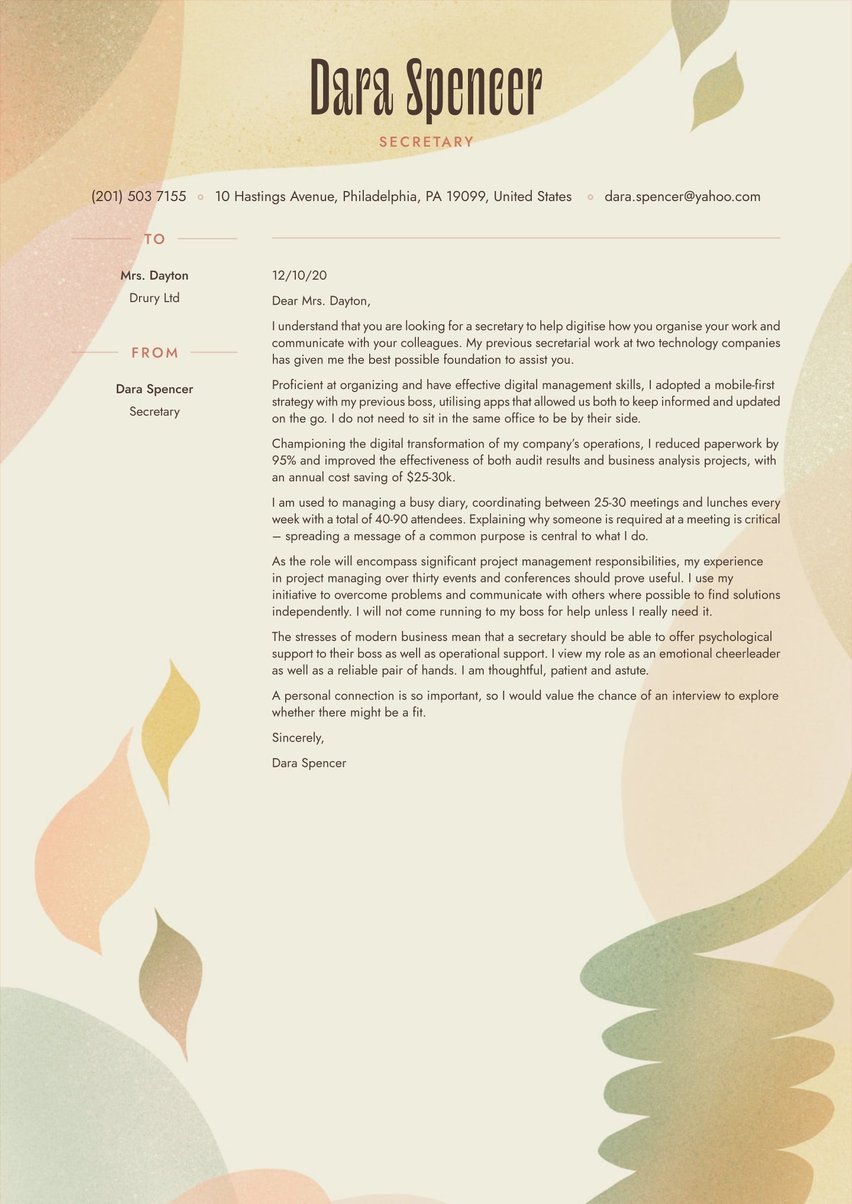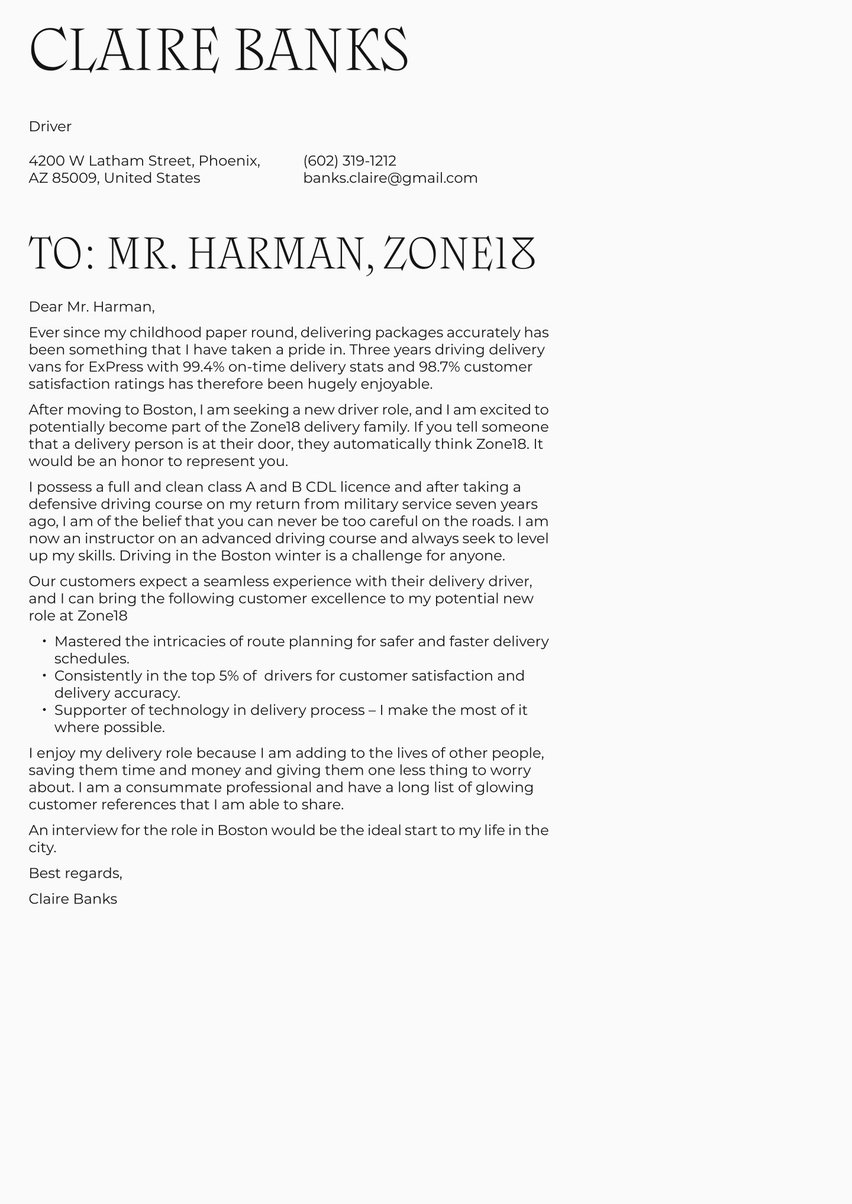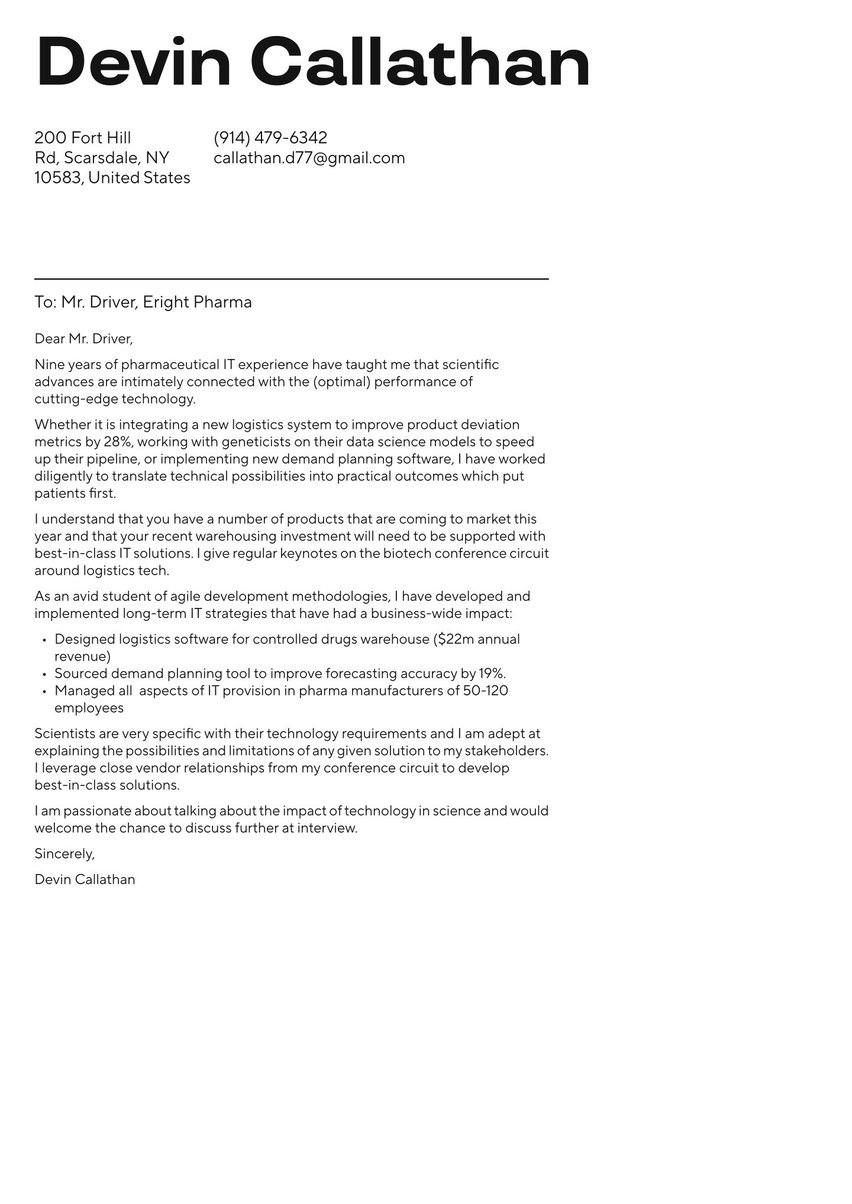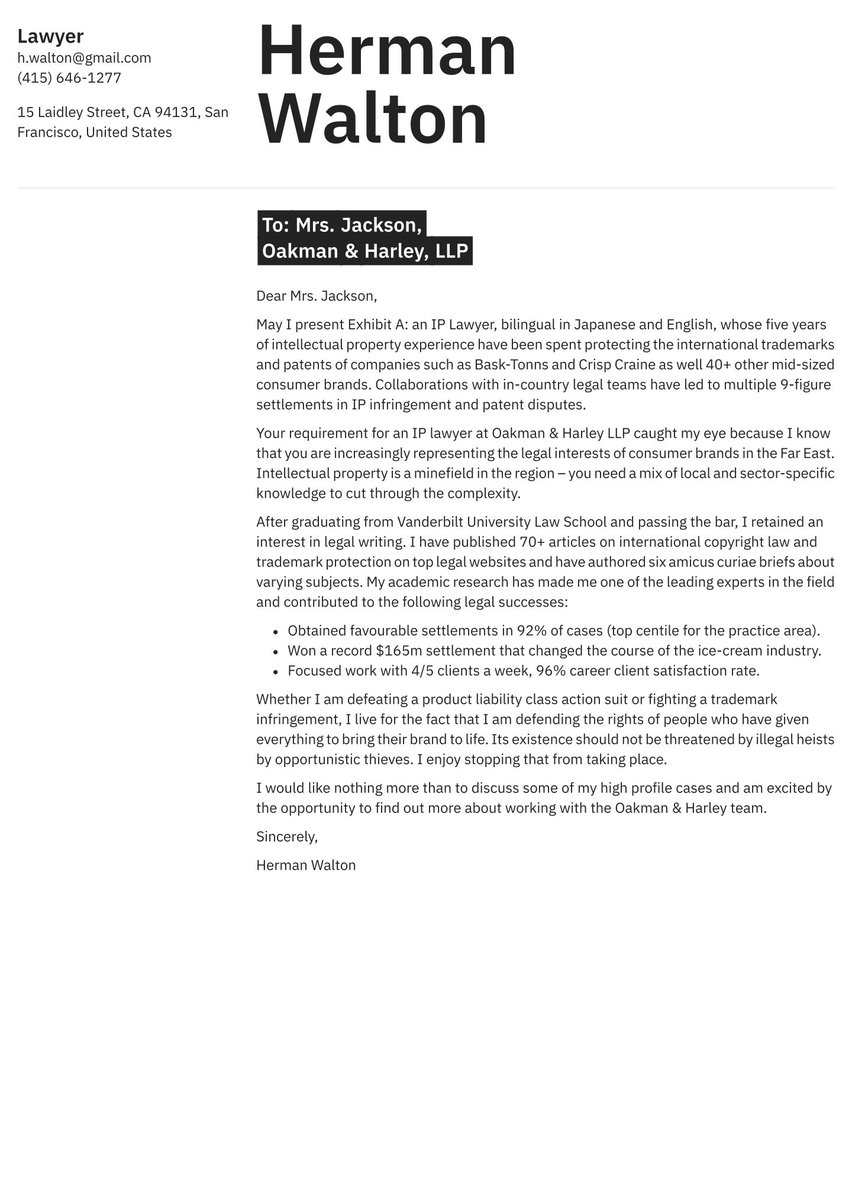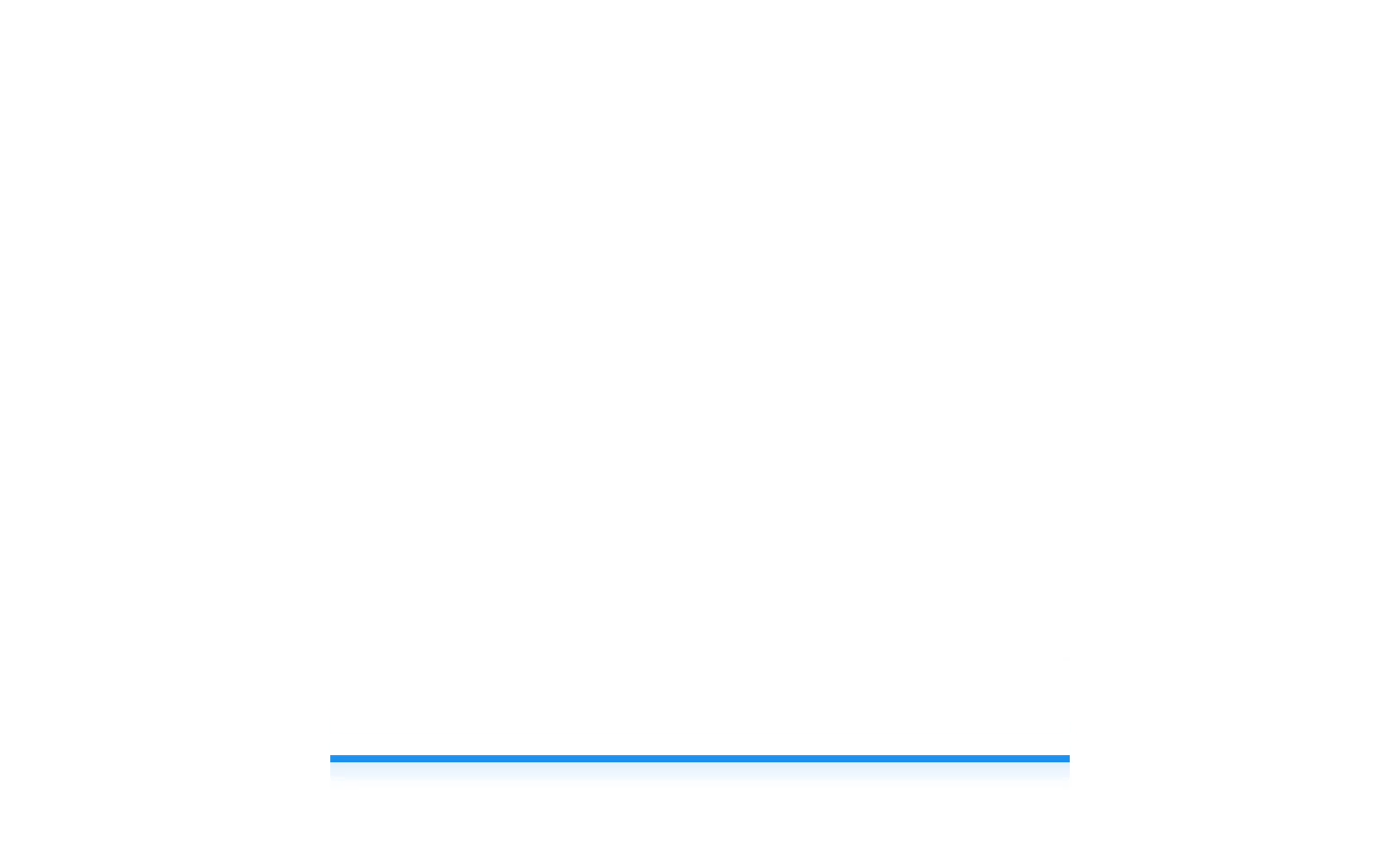Looking for a new position as a substitute teacher? You’re very much in luck. Substitute teachers are in high demand, and unlike other professions that feel the squeeze during economic downturns or health crises, the need for substitute teachers is actually increasing.
Substitute teaching is one of the most rewarding entry-level jobs since it provides flexible scheduling, reasonable pay and the chance to work with students of all ages – and you don’t need years of experience.
So how do you land one of the many new jobs waiting for you?
You’ll need to prove your teaching skills, passion for education and ability to adapt to the demands of the position. A great cover letter helps you stand out from other candidates and can make a big difference in how a principal perceives your substitute teacher resume.
Resume.io’s collection of samples, templates and our online cover letter builder are designed to walk you through the cover letter writing process from start to finish – and make it as easy as possible.
This guide, along with an effective cover-letter example will:
- Outline the importance of a cover letter in any successful application
- Provide free examples, samples and templates to speed up the writing process
- Dive into writing tips and tricks for candidates with no experience
- Help you create a unique cover letter that stands out and gets you hired
Before we dive into writing the perfect cover letter, it’s a good idea to first create an impressive resume. Check out Resume.io’s resume example especially for substitute teachers, plus our resume templates and general resume writing guide.
Now let’s create the best cover letter to land you the perfect substitute teacher position.
Free substitute teacher cover letter sample, plus general info
Let’s first take a look at what a cover letter actually is. Also called an application letter, this document accompanies your resume and allows you to expand on your goals, strengths, accomplishments and even personality.
A professional cover letter should be no more than one page in length, or about 200 to 400 words. While writing is important, your formatting also plays a big role in making a great first impression. Cover letter templates can help improve the overall quality of your document. For specific guidelines on font styles and sizes, check out this overall guide on cover letters.
What if the job application DOESN’T require a cover letter?
During the job search, you may encounter some job postings that list a cover letter as “optional,” or they fail to mention the document at all. So what should you do?
Many applicants might see this as a chance to save time and effort by submitting only a resume. However, this can significantly decrease their chances of landing the position. Unless a job posting specifically asks you NOT to write a cover letter, it’s always a good idea to submit one as part of a complete application.
An application letter is your secret weapon in convincing a school district that you’re the perfect fit, especially if you have little to no experience. Why toss out such a valuable opportunity?
The importance of tailoring your cover letter
Now that we’ve discussed the benefits of a great cover letter, there’s just one more thing you’ll need to know to make yours as effective as possible: you’ll need to tailor your cover letter to every position you apply to.
Tailoring your cover letter means adjusting it to include the most relevant examples and skills specific to the school district or even high school, middle school or elementary school that you apply to. For example, your experience as a nanny for small children might come in handy when applying to a kindergarten position, but you’ll definitely swap out that example for one about your love of science when applying to a position for a high school physics sub.
It might seem like a simple concept, but the little extra time and effort you spend on making your cover letter unique for each job description will put you miles ahead of other candidates who submit the same bland, copy-paste letter to each position.
Best format for a substitute teacher cover letter
While the advantage of a cover letter is it’s flexibility, that doesn’t make it completely structureless. In this chapter, we’ll break down the tried-and-true cover letter format into manageable steps. Here are the key components:
- The cover letter header
- The greeting / salutation
- The cover letter intro
- The middle paragraphs (body of the letter)
- The ending paragraph of your cover letter (conclusion and call-to-action)
The great thing about this structure is that it can be applied across job titles and industries, meaning once you master this recipe, a great cover letter will always be in reach! For more information on these sections, check out this overall guide on cover letters.
Cover letter header
Your cover letter header serves two important roles. First, it allows a hiring manager to quickly identify your document and access your full name and contact information should they wish to set up an interview. In large school districts, where hiring is taken care of by a team of people, a defined header keeps your application from becoming a nameless document lost in the shuffle.
The second purpose of your header is to create attractive formatting that makes your document stand out. Since education is a fairly formal field, it will be important to keep a professional look but you may also want to express creativity or friendliness, depending on the position. CV templates and cover letter templates can help you find the right balance without spending too much time and energy.
The goal of this section: Label your document with your name and contact information, create attractive formatting that is polished and eye-catching.
Align document styles!
When you want to take your application to the next level, aligning document styles is an easy step that can pack a punch. By using a matching cover letter template and resume template, you’ll create a “personal brand” – a look and feel that visually identifies your application materials.
Make sure to choose your templates wisely, since your presentation says almost as much about you as your writing, especially for teacher positions.
Cover letter greeting
Your cover letter greeting is a small section that can make or break your cover letter. Luckily, it’s pretty easy to get right. This is where you set a polite and respectful tone for the rest of the letter. For education positions, “Dear” followed by the correct salutation and the last name of the principal or hiring manager is the most appropriate option in almost all cases. Our cover letter example uses this greeting for that reason.
The goal of this section: Address the letter recipient by name to establish a polite and friendly tone.
Dear Mr. Harkness,
The importance of names and addressed greetings
Good teachers know just how important names are. That’s why they go out of their way to memorize the name of every student at the start of the school year. When a teacher uses the students name, it makes the student feel valued, appreciated and respected.
The same logic can be applied to cover letters. In fact, science has shown that humans have a positive neurological response upon hearing their own name. By addressing the principal or hiring manager by name, you’re showing your interest in the job and your respect for their position.
In large school districts, however, hiring is usually taken care of by a team of recruiters instead of individual principals. In that case, it may be near impossible to find the name of the person who will be reading your letter. Instead, you can opt for a collective noun like “Hiring Team” or even “(School District Name) Family.”
Cover letter introduction
A strong first paragraph is one of the biggest advantages you can give your cover letter. Hiring managers sort through dozens of applications, so an energetic and unique opening sentence is much appreciated. You can also start off your letter with an interesting fact, relevant statistic or an example of your experience – just make sure to use an appropriate, professional tone.
The goal of this section: Inject energy into your cover letter and catch the reader’s attention with an interesting fact or example, lead straight into the body section.
After a 24-year career as a high school Spanish teacher, I have been working as a substitute teacher for the past two years and believe I would make a great addition to your agency.
Cover letter middle part (body)
The cover letter body makes up the bulk of your document, and it’s the place where you can finally dive into the best arguments for your employment. To simplify the writing process, try breaking the body down into two subsections.
In the first, you can use the STAR method to list a Situation, the required Task, your Action and the positive Result that followed. Make sure to choose examples that highlight scenarios most similar to the ones you could encounter in this potential position. The cover letter sample paragraph below uses this method.
In the second subsection, you can again focus on your most relevant skills and give examples of potential contributions you could make to the new school district.
The goal of this section: Offer concrete examples of your skills and experience through the STAR method, describe potential contributions.
In my career as a substitute teacher thus far, I have experienced a variety of language teaching challenges covering sixteen different schools over four districts,and have taught pupils from 9th grade and up. Consistency of learning is key with high school students and I always strived to enhance my students’ knowledge of the curriculum rather than tread academic water with them. A blend of new learning and revision is best when there is a new teacher in the room.
Being a substitute teacher in a language setting is tough because you have to quickly “read” the classroom in terms of ability levels – understanding the students who are able to model the right language is an important starting point. My calm and relaxed personality allows me to put any new class at ease and my enthusiasm for Spanish ensures that my lessons are never dull. A different approach in the classroom can sometimes be a breath of fresh air.
Part of my substitute teaching has involved taking on extra classes with students who were struggling with grammar. I have developed unique speaking-led ways of assimilating the trickier aspects of the Spanish language and my experience with a hugely wide range of pupils has allowed me to create an effective approach.
I have previously assisted with school basketball and swim teams, organized concerts and coordinated parental events. Teachers contribute to their school outside the classroom as well, so I get involved where I can.
How to close a substitute teacher cover letter (conclusion and sign-off)
You’re in the home stretch! Now that you’ve laid out your skills and experiences, it’s time to finish your letter on a respectful note and encourage the hiring manager or principal to get in touch. The best way to do that is with a Call to Action. This sentence positively expresses your interest in the position and invites the hiring manager to contact you. You can even leave your phone number or email here again.
Now all that’s left to do is choose an appropriate signature. “Sincerely,” “Best regards” or “Thank you for your consideration” can all work well.
The goal of this section: Create an effective Call to Action that encourages a hiring manager to contact you, sign your letter politely and respectfully.
I would love the opportunity to discuss how my methods can make a real difference to my students. When you are learning a language, every lesson matters.
Sincerely,
Sherri Waters
Substitute teacher cover letter with no experience
For a substitute teacher position, there are a few main ideas you’ll want to convey on your cover letter:
- Patience: Substitute teaching comes with challenges all of its own. Sometimes you’ll be able to make meaningful connections with students. Other times, you’ll just need to make sure everyone gets through the day safe and sound. Conveying patience and an even temper shows a principal you can handle whatever task you’re charged with.
- Passion: If you’re just looking for an entry-level position, there are plenty of other jobs you could take. So why become a sub? Show a hiring manager that you have at least some degree of interest in connecting with young people and making their education experience a little brighter – even if just for a day.
- Communication skills: You don’t need to be an expert in every subject, but you do need great communication. From following lesson plans to leaving notes for the regular classroom teacher, you’ll need to express yourself in words and writing all day long. You can show great communication simply in the tone and professionalism of your cover letter.
- Adaptability: Substitute teachers have to be flexible. You never know where you’ll find yourself and you might even be called in the morning of. Show a principal you’re able to adjust at whatever the situation demands while still remaining positive and effective in the position.
The delivery makes a difference
In the mid-1900s, a group of social scientists at Yale began a yearslong research project to study persuasive communication. Their findings became known as the Yale Attitude Change Approach, research that is still cited to this day.
One of the key findings of this research was the idea that an audience is absorbing and evaluating not only the message a speaker wants to deliver, but also the presentation with which they deliver it.
In real life, or in a job interview, this can include everything from the speaker’s appearance to their tone of voice and body language. For written communication, this includes the visual style, document types and word choices.
In order for the audience to begin receiving the speaker’s message, they must first believe the speaker is credible – that they actually know what they’re talking about. This is the goal of your cover letter. Your personality and ability to make a personal connection can also help further this goal.
Applying to be a substitute teacher with no experience
Becoming a substitute is a great foothold in the rewarding world of education. If you have no previous experience, here are some things you can focus on:
Soft skills: If you’ve got passion, patience and perseverance, you’ve already won half the battle. Focus on qualities that are hard to find, even in other candidates with teaching experience.
Get specific: Use numbers, statistics and facts from the minimal experience you do have to prove your accomplishments or demonstrate your understanding of the position. Research shows specific numbers stand out in hiring manager’s minds.
Use a story: One great, illustrative story is better than a thousand mediocre examples. Start your letter with a tale that demonstrates your drive and you’ll be more likely to keep a hiring manager’s attention until the end of your letter.
Substitute teacher cover letter format and common mistakes
Let’s take a look at the biggest cover letter problems to avoid when applying for a substitute teacher position:
- Unprofessional formatting: Many applicants understand the importance of professional writing, but fewer grasp just how big a difference clean and deliberate formatting can make. If you don’t have the time or proficiency to design a layout yourself, a simple cover letter template or CV template can make it easy to create a great presentation.
- Unrelated experience: Substitute teachers may not need formal teaching experience, but experience working with kids in some capacity can be a big bonus. Activities like tutoring, coaching and nannying can show that you have a passion and ability to teach.
- Grammar and spelling mistakes: Don’t let little errors get in the way of professional communication. Make sure to use spell check and to proofread your resume and cover letter before you submit. You may even want to ask a friend to help.
- A generic cover letter: As a substitute teacher, your cover letter should be flexible enough to explain why you’d be successful across multiple subject matters and age groups, but that doesn’t mean you should submit the same cover letter to every position. Use the job description to tailor your letter to the needs of each individual school district.
Key takeaways
- A great cover letter does wonders to increase your chances of landing any given position – just make sure to tailor it with specifics from the job description.
- Follow the trusted cover letter organizational structure to keep a hiring manager’s interest from beginning to end.
- If you’re lacking experience, make sure to focus on the soft skills you do have: clear examples of passion, patience and adaptability can put you ahead of many other candidates.
- Don’t let formatting be an afterthought. Pay attention to your page layout and use a professional cover letter template if you need to get the job done fast.
- Concrete facts, statistics and numbers can boost your credibility and make your cover letter more memorable to a hiring manager.
With resume.io’s expert tools and guides, you can create a perfect cover letter in just a few minutes. No stress and minimum effort.
Time to land that job interview!
Handy list of related educative cover letters and resumes examples:
Cover Letters examples for:
- Nanny
- Graduate
- Tutor
- University
- Teacher
- Librarian
- Internship
- Scholarship
- Library Assistant
- Elementary teacher
- Student
- Teaching Assistant
- Apprenticeship
Resumes examples for:


